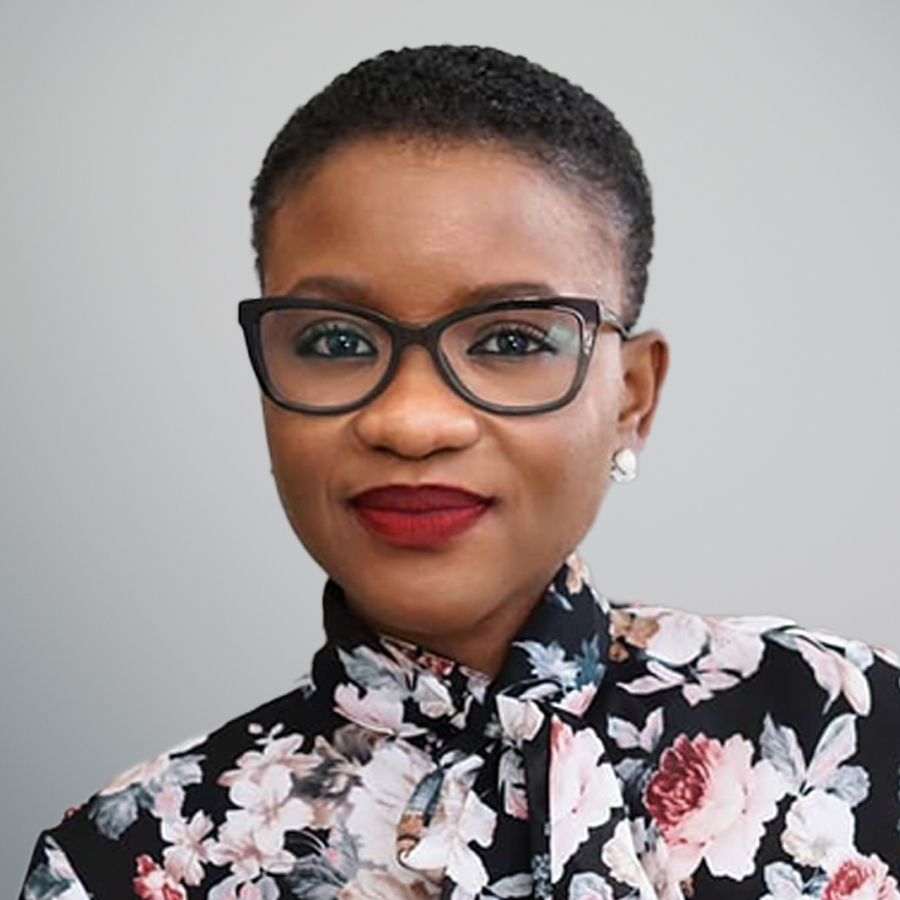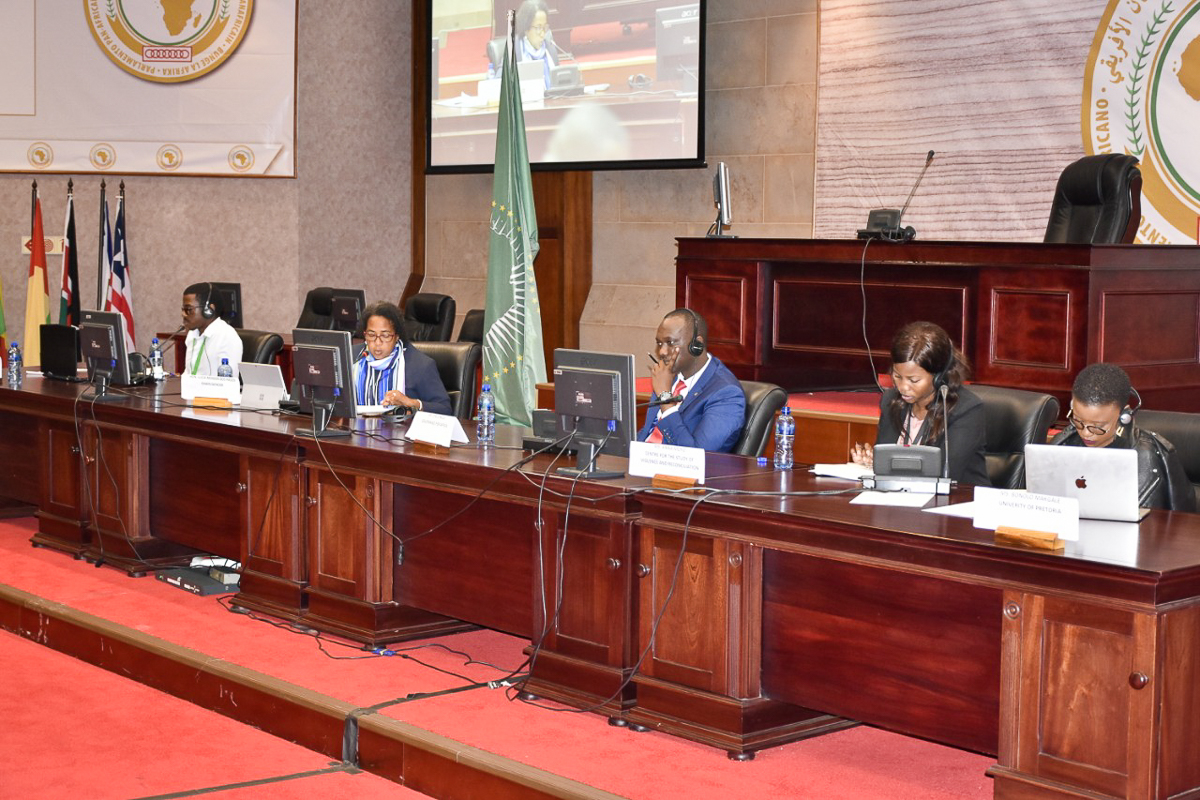From 3 to 4 March 2020 the Pan-African Parliament (PAP) hosted a Joint Workshop of Committees on the 2020 African Union (AU) theme. The AU’s theme for 2020 is Silencing the Guns: Creating a conducive environment for Africa’s development. The theme is intended to ensure that Africa creates a conducive environment towards prioritising peace, security and socio-economic development.
Bonolo Makgale and Thomas White of the Democracy and Civic Engagement Unit of the Centre for Human Rights, University of Pretoria, attended the joint workshop. Makgale delivered a presentation on Factors and drivers of extremism is peace-building and noted that there is something to be said about how human beings are able to endure violence. She questioned whether the theme of “silencing the guns” is enough when taking into account how creative some groups become in making other groups suffer. Makgale argued that systems have been put in place to ensure the death and dying of particular bodies. She noted that society is sometimes comfortable with the death of particular bodies, especially those that are black and brown, non-heterosexual, female or poor. In that light, she interrogated what extremism is, given the conditions of normalised violence against othered bodies? She asked who do we consider as extremist – is it Donald Trump, or ISIS, or Boko Haram and for which bodies do we cry foul for?
Makgale further argued that Africa and her people must be cautious of the definitions of extremism and peace-building. Africans must question the systematic conditions that give rise to extremism. There is a tendency to want to engage difficult conversations in a symptomatic manner rather than a critical manner. As per the South African tradition, we would rather build big walls than up-root the conditions that create violence in our society. Extremism is not born in a vacuum, there are ways in which the world is shaped that gives rise to violent ideologies. So we pretend we don’t see the systematic violence that creates monsters out of men. How long are we going to pretend that violent extremism and the displacement that comes with it has a strong gender dimension? We sit and listen to state men that hide their violence behind a language of care.
Makgale asserted that extremism is a telling of sign of how globalisation and exclusion takes form and expression. Extremist elements are coming from a place where people are not finding themselves represented in global culture. Therefore, in our interventions and interrogations of extremism, it might be worthwhile to pay attention to the human aspect, the socio-political as well as the socio-economic dynamics at play.
Makgale noted that we often understand peace-building and nation-building as economy based. We must begin to ask for an Ubuntu-based understanding of peace-building that prioritises human development and ‘the economy’. Peace-building that recognises those dying as human beings, deserving of a dignified life and dignified death. Africans must seek a complete re-shaping of an understanding of human development as part of peace-building. If human beings aren’t at the centre of our efforts, guns will not be silenced in Africa.
In a presentation titled ‘Where did the revolution go?’, Thomas White tackled the colonial origins of violent extremism in Africa. ‘There is a disconnect between the African revolution and the African reality’, White argued, citing the misdirected energies of Africa’s youth. His presentation explored the ideas that gave birth to the Organisation of African Unity (OAU) and propelled Africa towards liberation. White remarked that these revolutionary energies have been hijacked by extremist forces in Africa, exploiting the incompleteness of Africa's revolution and the widespread disillusionment of younger generations.
Since the African revolution has faltered, Islamic extremism and ethnic tension, give the youth other platforms to redirect their frustrations. This is either overt, by serving on the frontlines in an armed conflict, or more passive, by recruiting others and spreading ideological intolerance online. The AU needs to seize these energies, and redirect them into more effective forms of transformation that is aligned with its aims. Ultimately, he argued that the AU and its organs needs to return to its revolutionary origins, and include the young people it overlooks in its processes.
For more information, please contact:

+27 (0) 12 420 4199
bonolo.makgale@up.ac.za


